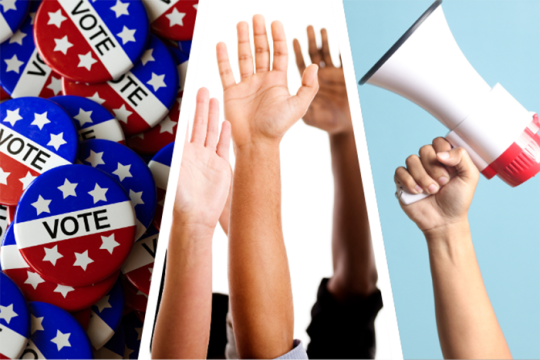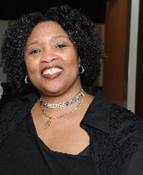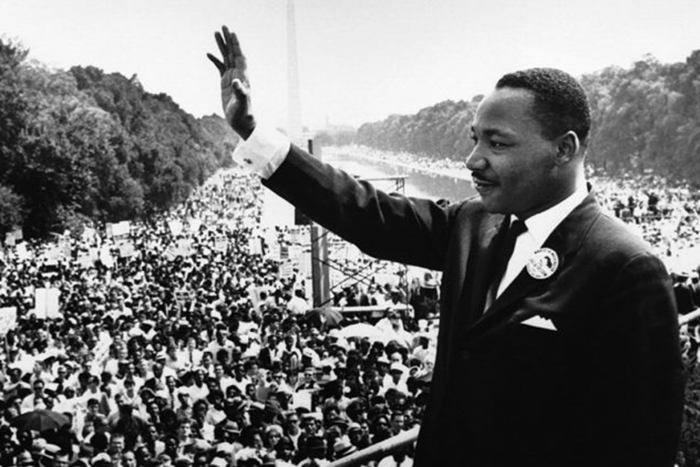
"Something is happening in Memphis; something is happening in our world. And you know, if I were standing at the beginning of time, with the possibility of taking a kind of general and panoramic view of the whole of human history up to now, and the Almighty said to me, 'Martin Luther King, which age would you like to live in?' I would take my mental flight by Egypt, and I would watch God's children in their magnificent trek from the dark dungeons of Egypt through, or rather across the Red Sea, through the wilderness on toward the promised land. And despite its magnificence, I would not stop there." This is an excerpt from Rev. Dr. Martin Luther King Jr.'s last and final speech, I've Been to the Mountaintop, given the day before his assassination. I realize we cannot travel through time, but we can take mental flight and imagine the future that we want to see.
Over the past few months, I have been thinking a lot about our country and the world we live in. As I wrestle with the world as it is and hope and work towards the world that I want to see, the kind of world that I want to leave to my children and their children, I have asked myself big questions that I do not have answers to. Such as, how did we get here? What led up to where we are? What is my role in helping to move the world closer to the one I dream about? When do I get to take a break? How do I motivate others? Who has changed the trajectory of history before, and how do we do it again? I admit that it took some time to shake myself out of the despair and hopelessness I experienced after the November 2025 election and remember that this was not a new condition. I remembered that the ancestors have been here before. They did not leave us without a blueprint. We know how to do this. We know how to do this thing called mobilizing and organizing and advocating for justice. I also realized that I have a faith tradition. I have this 4,000-year-old tradition and religion called Judaism that teaches us to love the stranger, and teaches us justice, justice we shall pursue. I also have a spiritual practice called Mussar, which means moral conduct, movement instruction, or discipline that gives me a range of spiritual practices to help make sense of the world and strengthen the character traits needed to stay in the fight.
If I am to share my honest opinion, we have yet to live in a world that values everyone equally. We have yet to live in a just society. But now that we know this, we must tap into the power is within us to create the world that we want to see. And if the past few months have taught me anything, it is that the work will always be unfinished; we are on a journey to a better place, but it will always be a journey. As soon as we think we have arrived, the road turns or we hit a detour, and it seems as if we are starting all over again. "The moral arc of the universe is long, but it tends to bend toward justice." Right now, the arc needs us; it is flailing in the wind. If half of us push it from behind and the other half pull it from below, there is no way we cannot move it. We will need to mobilize and organize others to join us. To join us in realizing and working toward Rev. Dr. Martin Luther King Jr. Dream of the Beloved Community.
Dr. King's Beloved Community has six principles. When I think about Dr. King's six principles it reminds me of the work that we are doing at the Union for Reform Judaism and the Guiding Principles that we use to create Communities of Belonging.
Principle 1 of the Beloved Community is.
Nonviolence is a way of life for courageous people. It is active nonviolent resistance to evil. It is aggressive spiritually, mentally, and emotionally.
Principle 1 of a Community of Belonging is Holy Boldness/Azut D'Kedosha. Embodies the courage and determination to pursue a righteous path, even in the face of adversity. "Be strong and strengthen your heart."- Psalms 27:14.
Principle 2 of the Beloved Community is.
Nonviolence seeks to win friendship and understanding. The result of nonviolence is redemption and reconciliation.
Guiding Principle 2 of a Community of Belonging is Compassion/Rachamin. Demonstrate concern and care for self and others pain and trauma, with a commitment to both justice and restoration. "Compassion is the wish to see others free of suffering." -Dalai Lama.
Principle 3 of the Beloved Community is.
Nonviolence seeks to defeat injustice, not people. Nonviolence recognizes that evildoers are also victims and are not evil people. The nonviolent resister seeks to defeat evil, not people.
Guiding Principle 3 of a Community of Belonging is Shared Humanity-Enoshiut M'shutefet. It is a higher level of connection that is not just with an individual, but a commitment to the collective. "Compassion is not a relationship between the healer and the wounded. It is a relationship between equals. Only when we know our own darkness well can we be present with the darkness of others. Compassion becomes real when we recognize our shared humanity." - Pema Chodron
Principle 4 of the Beloved Community is.
Nonviolence holds that suffering can educate and transform people and sociétés. Nonviolence accepts suffering without retaliation, and unearned suffering is redemptive and has tremendous educational and transforming possibilities.
Guiding Principle 4 or a Community of Belonging is Resiliency - G'mishut. The process and outcome of successfully adapting to difficult or challenging life experiences. "When we learn how to be resilient, we learn how to embrace the beautiful broad spectrum of the human experience." - Jaeda DeWalt
Principle 5 of the Beloved Community is.
Nonviolence chooses to love instead of hate. Nonviolence resists violence of the spirit as well as the body. Nonviolent love is spontaneous, unmotivated, unselfish, and creative.
Guiding Principle 5 of a Community of Belonging is Love - Ahavah. A range of positive emotions resulting in strong affection and admiration for someone or something based on valuing who they are. "Love is an action. Not simply a feeling." - Bell Hooks
Principle 6 of the Beloved Community is.
Nonviolence believes that the universe is on the side of justice. The nonviolent resister has deep faith that justice will eventually win. Nonviolence believes that God is a God of Justice.
Guiding Principle 6 of a Community of Belonging is Justice/Tzedek. Justice, Justice you shall pursue. "Injustice anywhere is a threat to justice everywhere." - Rev. Dr. Martin Luther King, Jr.
So where do we go from here?
As Jews, with our own unique proximity to pain and trauma, we have throughout history experienced the worst of what humanity has had to offer. Particularly since October 7th, the complexity of being a Jew in this county and this world has taken on a new meaning. As we wrestle with multiple truths, advocating for our own humanity and the right to exist, fighting for the humanity of others here and all over the word, we know that this is not new for us, it is what we have always done.
This week's Parsha Sh'mot, Exodus highlights a sort of evolution of sorts. The Israelite people are depicted as mostly unaware of what is going on around them and not having a real connection to loved ones; in need of seder/order and purpose. By the end of the book of Exodus, new teachers like Shifra, Puah, Moses and Aaron emerge and with new tools like the Torah giving them direction and purpose, a transformation takes place. If we know this story, we know that these teachers, these leaders risked their lives to do the right thing. We know Dr. King's life was cut short when he was only 39 years old for advocating for what was right as well as so many others.
In 1967, 11 months before King's assassination he gave an interview with ABC news. In this interview, he talked about the New Phase of the Civil Rights Movement. The initial premise of the work that was being done in the south was a struggle and the philosophy was to break down barriers of legal segregation and to end the humiliation. This in large part had been done. The South could no longer legally segregate Black from White. But what was important to take away from this interview is that you could feel a heaviness and hopelessness in King's voice. He understood, as he stated watching the rest of what was happening in this country; particularly in the North; the Ghettos; police brutality; economic injustice that the fight had only begun. In this interview he talked about the equality only being and "installment" plan and understood more deeply how 244 years of slavery had dehumanized and "thingified" Black people, freedom but without food and loaded with famine.
King saw that there needed to be much more done to move things forward. He talked about their being a "cost." To date, there had not really been a cost. If anything, the nation benefited economically from bringing people in the South to be more participatory in capitalism. His idea of equality began to evolve into a yearning for justice. He realized that people who have been in privileged positions would need to give up something if things were going to move any further.
And we are here today. The moral arc of the universe is flailing in the wind and is in desperate need of help to bend it toward justice. How do we do this and live and honor King's legacy?
We are honoring King's legacy by living our Jewish values. By having the stamina and flexibility to hold the diversity of narratives all at once. We know how to stand proud and strong in support of our Israeli family and pray very soon, I hope, for the return of our hostages, mourn and be horrified by the humanitarian crisis and innocent lives being taken away in Gaza, the genocide in Sudan, the civil unrest in Haiti, displacement of millions in the Congo, pray for the end of the war in Ukraine, fight the war on democracy here in the U.S., and the rise of antisemitism, and continue to work to dismantle the persistent, daily scourge of racism, do what we can to fight the obvious climate change challenges and many other things.
We are honoring King's legacy by turning the pain into purpose, and purpose into progress and progress not just for the Jewish community, but for every community.
We are honoring King's legacy by honoring our own sacred text. The Torah tell us that Jews are taught to accept others, without prejudice or bias. The Torah states "You shall not hate your kinsfolk in your heart. Reprove your kinsman but incur no guilt because of him. You shall not take vengeance or bear a grudge against your countrymen. Love your fellow as yourself; I am the Etermal (Leviticus 19: 17-18).
In the Talmud, we learn that all people are descendants from a single person so that no person can say, "my ancestor is greater than yours." God created humanity from the four corners of the earth-yellow clay, and white sand, black loam, and red soil. Therefore, the earth can declare to no part of humanity that it does not belong here, that this soil.
And lastly, we are honoring King's legacy by tapping into the power of memory and imagination.
When I tap into memory, I instantly connect with my four grandparents Estelle, Freddie, Walter, and Ruby. I knew each of them. The memories of who they are is forever etched in my soul. I can hear them feel whispering in my ear; it is your turn, write your story, be the ancestor you want to be. I can feel the drumbeats of the rhythms they danced to forever etched in my memory. If you listen closely, you can hear your ancestors. Feel their presence! Keeping you safe, challenging you and sending you the support you need during tough times.
What New World/Olam Hadash can we imagine? If you were asked to write the future state of the world 50 years from now. Imagine it and start working towards it.
The Movement of the Beloved Community, Memory, Imagination and Belonging will help us reunite our world.
In closing, I want to leave you with an excerpt from Dr. King's Letter from Birmingham jail. It absolutely could be something he wrote today. King said:
Moreover, I am cognizant of the interrelatedness of all communities and states. I cannot sit idly by in Atlanta and not be concerned about what happens in Birmingham. Injustice anywhere is a threat to justice everywhere. We are caught in an inescapable network of mutuality, tied in a single garment of destiny. Whatever affects one directly, affects all indirectly. Never again can we afford to live with the narrow, provincial "outside agitator" idea. Anyone who lives inside the United States can never be considered an outsider anywhere within its bounds.
Related Posts
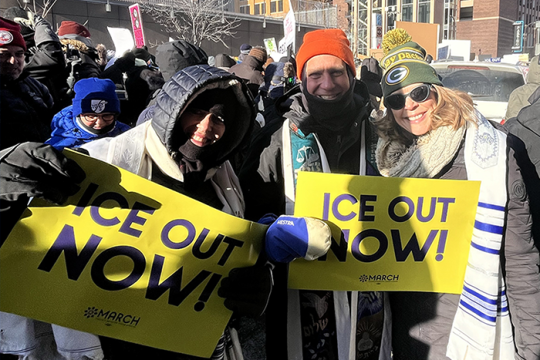
Hineni: Bearing Sacred Witness in Minnesota
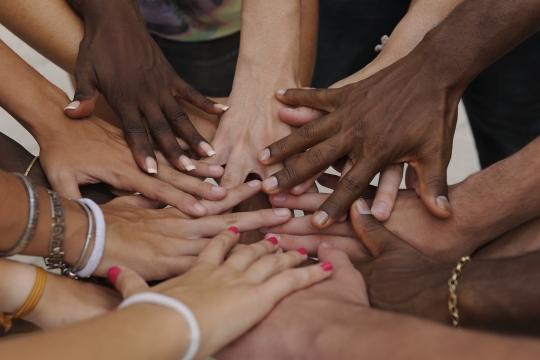
Being a Teen Leader in RAC-PA
